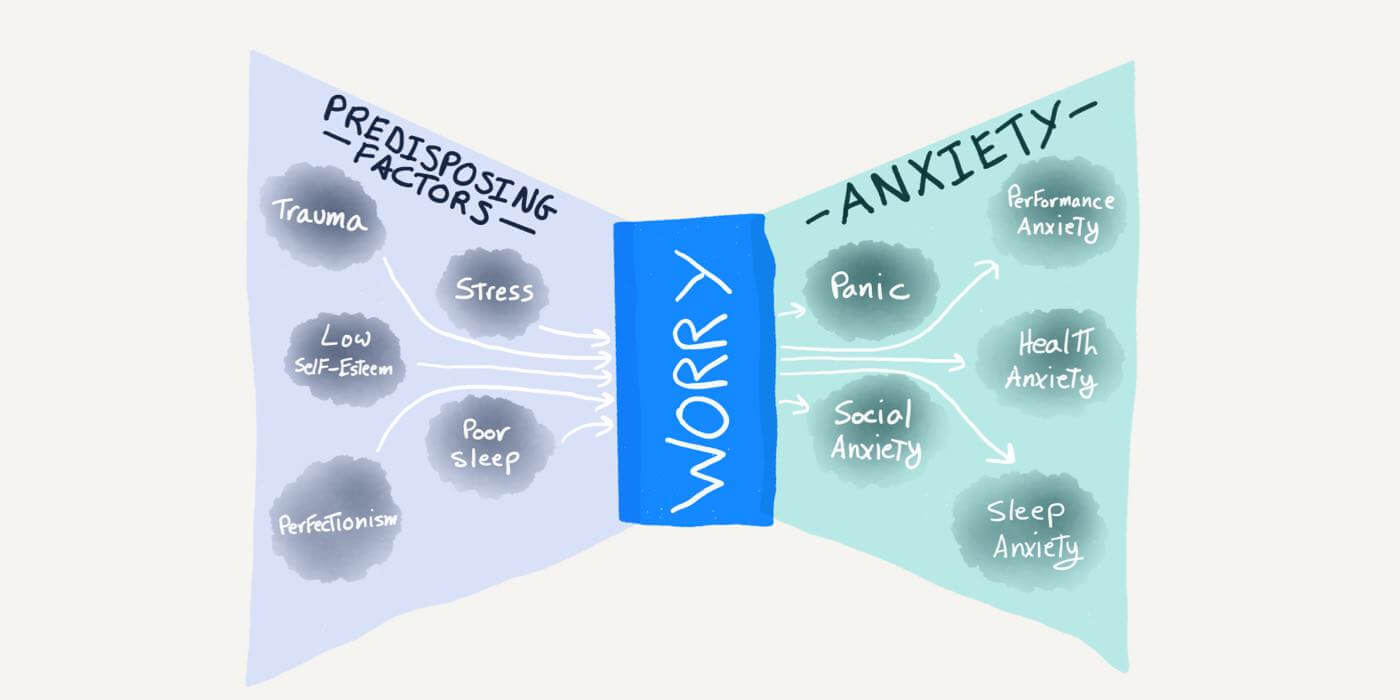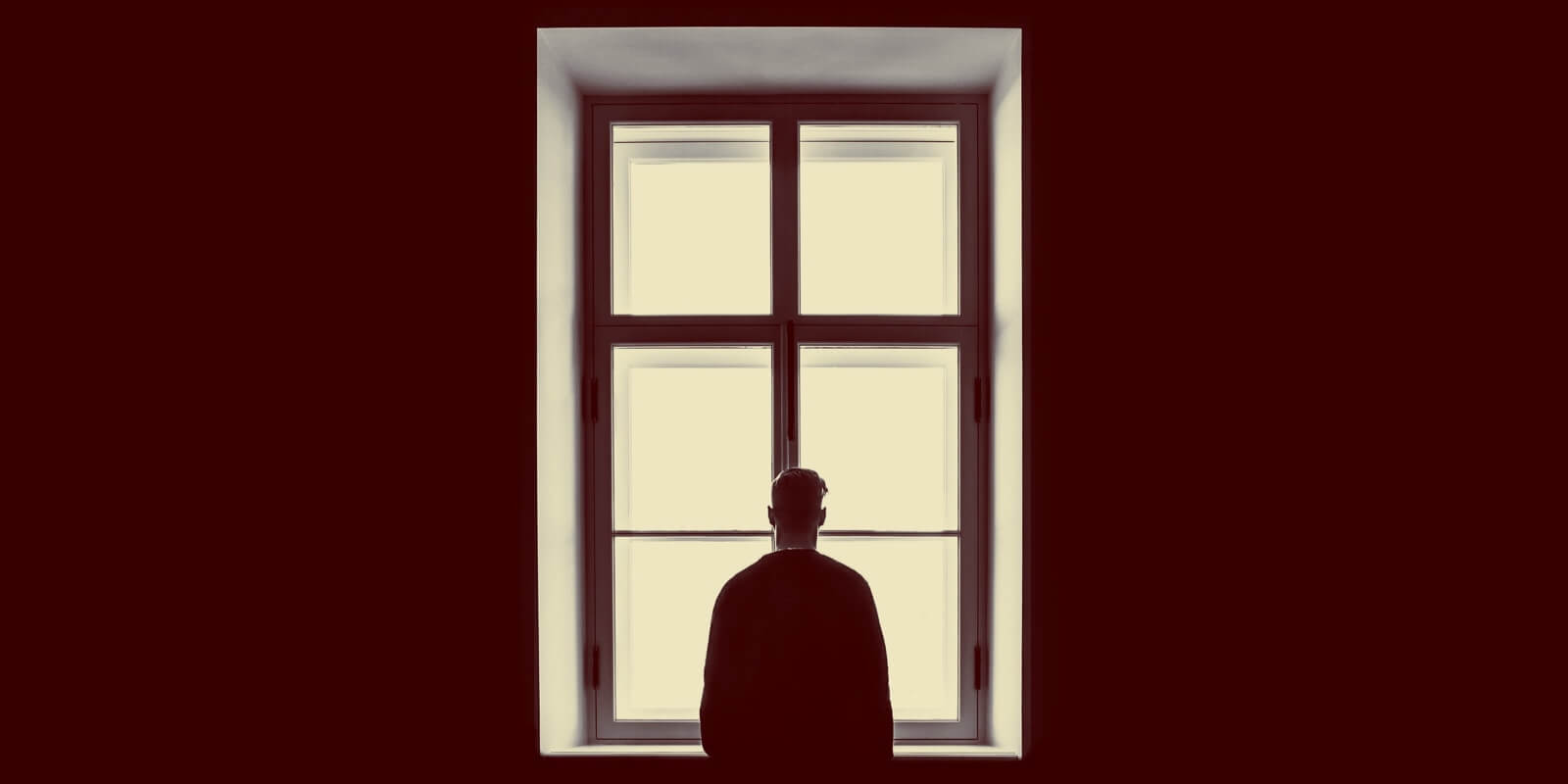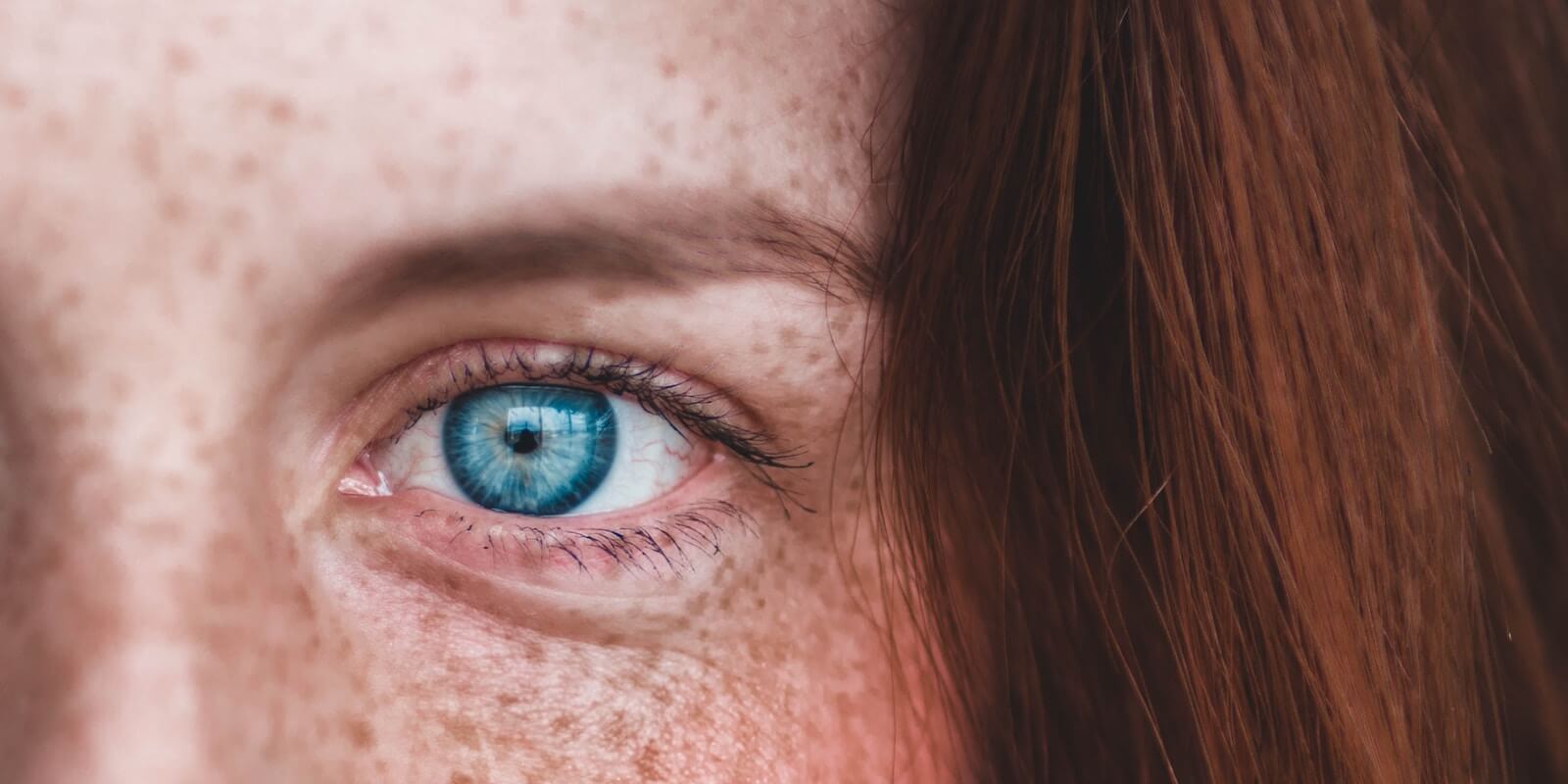Whenever a client comes to work with me on their anxiety issues, I always ask what they think is causing the anxiety.
Typical answers are:
- Stress
- Low self-esteem
- Trauma
- Perfectionism
- An unhappy childhood
- Relationships struggles
As I listen to these theories, I nod my head knowingly because I understand that to my client it feels like these things are causing their anxiety.
But what I’ll have to help them see eventually is that those things are not the actual causes of anxiety in their lives. Not directly, anyway…
There Is Only One Direct Cause of Anxiety
See, all these apparent causes of anxiety like stress or low self-confidence aren’t causes so much as predisposing factors. Indirectly, they may make you more vulnerable to the one thing that directly causes anxiety: worry.
Here’s an example:
The extreme criticism you received from your parents as a kid isn’t causing your anxiety as a 42-year-old giving a presentation at work. But it’s entirely possible that as a result of your childhood experiences with criticism, you developed a habit of obsessively trying to understand how everyone around you felt about you.
As an 8-year-old, that was probably the best you could do to cope with your parents’ extreme criticism. But if that habit of worrying about what other people think sticks around into adulthood, it’s very likely to cause anxiety in the present.
Many things lead to worry, but only worry leads to anxiety.
A few more examples:
- Stress doesn’t cause anxiety. But when you’re stressed out, it’s harder to suppress your worry and stay focused. And when you get lost in worry, anxiety is the result.
- Low self-esteem doesn’t cause anxiety. But as a result of your low self-esteem, you may lack confidence in your decision-making. Which means that when asked to make a decision, you start worrying about what will happen if you make the wrong decision, which is what actually makes you feel anxious.
In short: Worry is the only direct cause of anxiety.
If you want to be less anxious, you should focus primarily on reducing your habit of worry because that’s the only direct cause of your anxiety—and often it’s the only part you have control over.
Oh sure, just stop worrying… Easier said than done!
It’s true: breaking free from a long-standing habit of chronic worry isn’t easy. But it is possible.
Like any habit, the habit of worrying can be broken. And as a result, you can feel much more at peace and less anxious and overwhelmed.
The trick is to understand how worry really works…
Worry vs Anxiety vs Stress
Before we go any further, let’s take a quick minute to define some key terms:
- Anxiety is an emotion resulting from a perceived threat or danger.
- Stress is your physical response to a perceived threat or danger.
- Worry is unproductive thinking about a possible threat or danger.
Let’s use an example to illustrate…
Suppose you’ve got a big presentation for work coming up tomorrow. As you’re walking down the aisle at the supermarket getting food for dinner, you see an advertisement for chocolate ice-cream on the end of the frozen goods section. This reminds you of your boss who has the rather eccentric habit of eating a pint of chocolate ice-cream during meetings.
At that moment, you immediately feel a storm of painful experiences:
- Your shoulders feel tense, your grip on the grocery cart tightens considerably, you feel a little warm—maybe even sweaty—and you notice your heart rate jump.
- You start imagining yourself giving the presentation tomorrow, picturing how awkward you’re going to be and inarticulate. You can literally hear your boss’s overly critical voice pointing out flaw after flaw in your ideas. You begin envisioning how you should probably just quit tomorrow morning and start looking for a new job.
- In the blink of an eye, you went from calmly strolling through the supermarket to feeling nervous, then anxious, and now almost on the verge of panic.
As you can see by the way I divided things up, there are really three distinct classes of experiences happening to you when you’re anxious: There’s your physical response, your mental response, and your emotional response.
In short, you can think about it like this:
- Anxiety = Emotion
- Worry = Thought
- Stress = Body Sensation
While it’s helpful to disentangle the emotion of anxiety from its mental and physical counterparts, we also need to think about the relationship between these three parts. Because while it feels like they all hit you at once, there’s actually a specific order in which they happen.
Worry Always Comes Before Anxiety
When you’re feeling anxious, the experience is usually that all this stuff is happening at once: You’re feeling anxious, worrying, and stressed simultaneously.
In reality, the causality happens like this:
- Trigger. Something in your environment triggers you. In our example above, it was the advertisement for chocolate ice-cream. Side Note: Things in your “internal” environment can trigger you as well—a memory, for instance.
- Interpretation. Almost immediately after this, you have some kind of thought about what that trigger means. For example, the immediate thought or interpretation that blitzed through your mind after seeing the ice-cream ad might have been: “Oh no, I forgot that my presentation is tomorrow.” Importantly, this initial worry is often so fast that you don’t even notice it.
- Emotion & Body Sensations. In any case, that initial piece of worry then leads to a fear-based emotion like nervousness or anxiety as well as a physical stress response that includes things like muscle tension or increased heart rate.
This is the first cycle of your anxiety. But keep in mind that often the first cycle leads to many more cycles.
For example, now that you’re feeling anxious and stressed, you might have another worry along the lines of “Can other people in the store tell that I’m anxious?” Which leads to an even greater degree of anxiety (perhaps bordering on panic now) as well as a stronger stress response.
Then you have another worry like “I can feel my heart racing… that’s not normal. Oh my God, am I having a heart attack?” Which leads to a lot more anxiety and even stronger physical signs of stress.
The key thing to see is this:
Even though it’s cyclical, anxiety is a fundamentally linear process, with the mental act of worry always preceding the emotion of anxiety.
Theories of Emotion, Old and New
That thought always precedes emotion is actually a well-established principle of human psychology called cognitive mediation—and it applies to all of our emotions, not just anxiety or fear. It means that cognition, or thinking, always mediates or comes between a trigger and our emotional response.
For example: If someone cuts you off while driving, their car going fast and passing you isn’t what causes you to feel anger. Instead, it’s your interpretation or thinking about what they did—“That jerk is gonna kill someone!”—that causes the emotion.
Side Note: Through conditioning, a trigger can lead directly to a physical response without any cognitive activity in between. So, it’s possible that if you have a lot of anxiety associated with ice-cream, an advertisement for ice-cream could directly produce a physical stress response. This is analogous to a reflex. But importantly, you won’t experience an emotion like fear or anxiety until you have some form of thinking or cognition.
While this principle of cognitive mediation was codified scientifically in the mid-twentieth century, it’s actually been around as an idea for millennia. In fact, it’s arguably the core principle of the ancient Greek and Roman philosophy stoicism.
As the stoic philosopher Epictetus put it:
It’s not what happens to you, but how you react to it that matters.
Of course, none of this is to say that your thoughts are literally the only thing that matters in terms of how you feel. Obviously our environment and what happens to us do exert an effect on us.
The critical distinction here is that things like our past or our environment or other people can at most have an indirect effect on our anxiety. Stress, poor sleep, conflict with your boss, trauma, a neurotic personality style, low self-esteem, and all the rest indirectly lead to anxiety in that they predispose us to worry. But it’s worry and only worry that leads directly to the feeling of anxiety.
This is a critical idea to internalize if you want to actually become less anxious.
You Can Only Change What You Can Control
All these distinctions between worry and anxiety, for example, or indirect vs direct causes of anxiety, aren’t just academic curiosities. Your ability to effectively manage your anxiety in a healthy way depends on having a high degree of clarity about them.
And the reason is control.
The biggest mistake people make with their anxiety is that they try to control things they don’t have control over.
Going back to our ice-cream example, the key inflection point in the timeline wasn’t being triggered or that first worry about “Oh no, I forgot that my presentation is tomorrow.” The fact that you happened to get triggered and had an automatic worry about it that that led to some anxiety… There’s not much you could have done to avoid any of that.
The critical turning point is what happened next: Worrying more about feeling anxious, what other people would think, having a heart attack, etc.
Once we feel anxious, most of us understandably want to feel less anxious. So we try to control our anxiety—either by fixing it through thinking more about it or trying to escape it and avoid it altogether. The problem is you don’t really have direct control over feeling anxious. Once you’re anxious, you’re going to be anxious for a while.
You can’t fix an emotion any more than you can tell the sky to stop raining.
What’s more, by trying to control this fact (anxiety) that you can’t actually control, you’re very likely to cause the opposite effect and make it worse:
- When you start analyzing your anxiety and trying to “fix” it, you usually end up worrying more, which leads to bigger and longer lasting anxiety.
- When you try to run away from your anxiety, that signals to your brain that anxiety is itself a threat, and so you get anxious about feeling anxious.
So, if I can’t fix my anxiety or avoid it, what am I supposed to do when I feel anxious?
So glad you asked! Nothing.
Once you feel anxious, the best you can do is not make it worse.
Look, you can’t just make yourself feel better any more than you make the rain into sunshine. That’s not the way the world works. Similarly, you can’t make yourself feel calm any more than you can make all the adrenaline flowing through your system disappear.
The reason is simple: You don’t have direct control over your emotions or your physiological response to stress.
Similarly, you can’t go back in time and change the fact that you slept like garbage last night, inherited a personality that makes you susceptible to worry, or had a mother who didn’t love you like you think she should have.
It’s incredibly tempting to try and change or avoid painful things like unhappy memories, uncomfortable emotions, or painful feelings. But the act of trying to change or avoid them only makes them worse in the long-run.
Instead, the next time you feel anxious, ask yourself this question:
What do I actually have control over?
While you can’t directly control your emotions or most of your physiology, you can always control your attention—what you chose to focus on and think about.
And controlling your attention is the key to controlling your worry, which is the one thing directly causing you to feel anxious.
If You Want to Control Your Anxiety, Learn to Control Your Worry
The best way to avoid major bouts of anxiety is to do two things:
- Accept initial moments of anxiety as unfortunate but not something you can control.
- Take responsibility for the one thing you do have control over: your attention and whether you chose to feed your anxiety by continuing to worry or not.
Obviously, this is easier said than done.
But like any skill, the key to getting better at controlling your attention is practice.
And like any skill-building endeavor—from learning the piano to negotiating corporate contracts—you need practice. And the only way to practice long enough and consistently enough to have positive effects is if you make that practice into a habit and routine.
If you want to feel less anxious, commit to habits that will help you worry less.
What are some good habits for learning to worry less?
The single best habit I’ve found to break your worry habit and lower your anxiety long-term is called Scheduled Worry →
Summary & Key Ideas
If nothing else, I hope this essay has nudged you to think a little bit differently about the relationship between anxiety and worry in your own life. And to think about the question of what causes anxiety with a little more nuance.
To review, here are the key ideas:
- Anxiety, worry, and stress are fundamentally different things. Anxiety is an emotion. Worry is a form of thinking. And stress is a physiological response.
- Worry is the cause of anxiety. While many factors from the way you were raised to how much sleep you got last night can indirectly affect your anxiety, worry is the only direct cause of feeling anxious.
- To feel less anxious, control your worry, not your anxiety. You can’t directly control your emotions, including your anxiety. And trying to do so usually backfires. But you can always control your attention, including the choice to elaborate on your worries or let them go.
- If you want to control your worry, commit to habits that train your attentional control. A mindfulness practice is one of the most powerful ways to improve your skill at controlling your attention—and therefore your worry and ultimately your anxiety.





38 Comments
Add YoursThank you, this explains so much to me!
I’m glad it was helpful, Deborah!
Great perspective about anxiety. Made more clarity abotu anxiety than most of the articles out there.
Thanks, Shahid. Glad it made sense 🙂
This was mind blowing for me, thank you for such a great article ????
You’re very welcome, Sarah!
Commit to habits that help to worry less. Those are habits that I do on Saturday or Sunday….note to self…do more of those things (or commit to them) Monday through Friday!
Baby steps 🙂
Nick,
Simply AWESOMENESS! You have a great way of explaining the challenge AND how to correctly deal with it.
Bravo!
Ann
thank you, Ann 🙂
According to this, my problem is not anxiety but stress ; rapid shallow breathing, stomach knot, increased heart rate, wheexing, etc. It is stress that wakes me up at night. when triggered, I can distract myself, but the breathing issue, the stomach discomfort persist for hours. Remedy of more use than theory.
Hey Laurie, I agree that remedies are more useful than theory. But it’s hard to find the right remedy without a correct theory.
Just spent 20 min writing and deleting all the wonderful words i could think of to express my immense gratitude to you for putting your work out there for people like me to see. I give up????????♀️???? Thank you, THANK YOU????????
Aw, thank you, Bonnie 🙂 I really appreciate you saying so!
Thank you, this is great! Does anger have a similar gateway cognitive step, akin to worry? Do other emotions?
Thank you!
I think so… With anger, for example, it’s almost always the mental act of rumination about what should have been that leads to the emotion of anger.
Thanks for the brass tacks. It’s reassuring to hear the basics stated clearly. It ALMOST sounds simple and straightforward. But, I suppose it’s like a diet. Not a flash in the pan but a small tweak, regularly applied. Thank you for a great morning read. JB
You bet, James! Yeah, I mean, I do think it’s pretty straightforward. But like you said, simple and straightforward doesn’t mean easy!
Hey Nick I do so enjoy reading what you have to say. I am a 79 year old widow who just can’t seem to get along with my two daughters. I know that I’m depressed which I fight every day. Lost my husband 3 1/2 years ago but I have not learned to be happy with that without him. I’m sure where it is exactly the problem but I guess I just worry about my future and how lonely I am. I have tried to make my daughters understand how it feels to be Alone. When feelings come up it seems that mine or not important and I should be over them and be able to move on. I think I worry about move on to what??
Hi Cherie, I am so sorry for your loss! Grief is like the tide– it comes in and goes back out. I have had a lot of loss in my life. I am familiar with grief. I am just sharing my experience with you ok?
I have found that grief is love–love with no place to go. It is HARD. But it is also good. My loved ones deserve to be missed! There are 5 stages of grief and they pop up whenever they do but generally they are: denial, anger depression, bargaining and acceptance. Grief is different than despair or regret. Those are two ugly cycles I can get stuck in if I am not practicing mental awareness of my feelings. They can also turn into SELF-PITY. UGH…. self-pity is tricky to recognize. It presents as a feeling or as grief but it is NOT.
Perhaps this is one reason that you are having trouble with getting along with your daughters. Grief is a natural occurrence when faced with loss. ALL change brings loss of what was and some fear of the unknown as well. If you are repetitively expressing the same thing to your daughters of how you are “Alone” and don’t know how to be alone, that is hard to here. You are alone in not being a partner, but you are not “Alone”! Your daughters are in your life! Appreciate them!! What about friends? And your relationship with yourself? Do you know what you like? Do you cultivate your interests and develop hobbies and friendships? Or are you sitting by yourself feeling sorry for yourself? I confront you with living care Cherie???? Try making a list everyday of 5 things you are grateful for. No repeats!! Do it for a month. See if how you feel changes as you shift into being grateful. My mom grew up in Berlin during WWII. She said it was the little things in life that made her happy. Big things don’t come along that often.
Be grateful you had a wonderful husband! Have 2 healthy daughters! Cultivate this new season in life. Make it how you want it to be, accepting that you are single and maybe getting curious about what that could look like in a good way! And stop talking about how sad you are to your daughters and ask them how they are doing while being a good listener. They need you. Join a grief group and take your feelings there to process with people who understand and are going through the same thing. Perhaps you will find some new kind friends there too. Your life isn’t over, just a very significant chapter has closed. Time to write the next chapter in your own book of life. Take extra special care of yourself Cherie–you are going to be alright????
Not only are these deep dive articles useful, clear and informative (especially to those of us who are analytical!!) but they allow us to understand what we have to do rather than position these insights as ‘the solution’
I’m always wary of the marketing of ‘self help’ books that gently imply they’re the solution. They are not.
The solution comes from understanding how anxiety occurs but then it’s down to us to continuously work at breaking the habits.
Simplistic, I know, but a book on how to swim won’t teach us to swim even if it does help us ‘understand’ the process needed to swim.
For me, a huge learning is the discipline of working patiently to create a new habit that extinguishes the old.
That’s the value to me. It’s powerful.
I wonder if I can ask a question having read today’s super issue?
The explanations on worry, anxiety, stress confused me slightly. Perhaps it’s just the order they’re written in.
You wrote:
Anxiety = Emotion
Worry = Thought
Stress = Body Sensation
If I am being logical is this an accurate reflection of the cascade outlined above?
Thought -> Worry -> Emotion
-> Anxiety-> Stress -> Body Sensation
This article helped me to understand why I feel anxious when I do, which I so appreciate. I better understand now how to work on managing my worries using meaningful mindfulness techniques to alleviate anxiety.
Thank you for another excellent description, simplifying what feels unsurmountable and impossible to overcome.
Thanks, Nick, for this excellent article. Helps me to understand the interchangeable words that people use and then to lead them to clarification
Thanks for bringing in the clarity. it is a very useful article.
Amazing essay!! Super insightful!
Hi Nick,
Great article, as always!
However, there’s a little something I’d like to maybe get your opinion about.
When looking at this from somewhat of a philosophical way, I guess, doesn’t saying that anxiety is always and only caused by worries is just (re)defining anxiety as a form of intense worry?
To illustrate, let’s try to describe that spectrom of experience without conceptualizing it first.
One experience we’re looking at is thinking about future risks, and another is the obsessing about future risk, right?
Then we name the first worries and the second anxiety.
However, there’s also a certain pattern in here. There’s a healthy emotion (worry) and there’s the same emotion in ‘hyper’ mode (anxiety).
From my observations I found that many emotions have this kind of ‘hyper’ mode, and I assumed that since that doesn’t have a name, perhaps the hyper component should be referred to as anxiety. Then you’d have hyper social awareness => social anxiety; hyper fear => panic; hyper worries => GAD; Hyper anger => fury, and so on…
What do you think about that? Does this resonate with your experience? Could there be a certain experiential component might have been left without a concept and a label?
Hey Nick, this was a good article.
You have explained the concept of “Worry behind Anxiety” well. Thank you for writing this. 🙂
Thank you for this article!
It helps with my anxiety and all the not so much fun feelings
Fantastic, clear article, but so much easier said than done. I have tried mindfulness for years with no success. As soon as I move away from my mindfulness time and begin the day, the practice is not effective. Stress, anxiety, and worry return within minutes. This is a constant battle in this crazy, negative world we live in.
It truly is a contant battle and the only solution is this: make being mindful a lifetime habit instead of only practicing it for some time in your day. The end goal would be to be mindful all the time. When you’re mindful worry doesn’t exist.
This article was very useful to me!! Thanks for the explanation!
Hey Nick, what should i do if i would like to have a consultation with you? Where can i contact you?
Thank you,
Thank you so much Nick. I’m so glad we crossed paths.
Thank you for this amazing article Nick .
Me and my seven years old son read and discuss your articles. My little man is addicted to the mindfulness practice now .
Thank u Nick
I now understand the difference between worry and anxiety .
I also know wat leads to each other. And the only way to control anxiety.
Thank you, thank you!
Nick, you have a great way of breaking things down into clear and useful chunks — I very much appreciate that as it gives (us) the ability to put things into practice in a meaningful and productive way. =)
Very good analysis. I took down key points plus the diagram. A picture is worth a thousand words and your picture is gold!
I will share this in my Bible Study Class …Bitter or Better, the choice is yours!